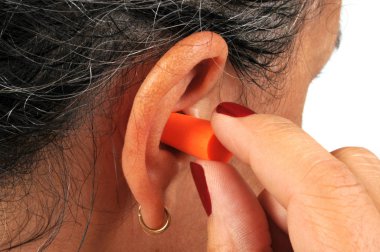What’s that annoying ringing sound…???
Tinnitus, often described as a ringing, buzzing, or humming noise in the ears, is a common condition that affects millions of people worldwide. While it is usually not a sign of something serious, it can be annoying and significantly impact the quality of life. This article will explore and consider some of the various ways to manage and treat tinnitus.
Let’s find out some of those practical coping mechanisms to those who may be affected, or know someone who might be going through this challenge.
Understanding Tinnitus
Tinnitus can manifest in many forms and can be either an acute (temporary) condition or a chronic (ongoing) issue. It may affect one or both ears and can even vary in pitch and intensity. The exact cause of tinnitus is not always clear, but it is often associated with some of the following such as:
- Exposure to loud noise
- Ear infections
- Earwax buildup
- Age-related hearing loss
- Ototoxic medications
- Underlying health conditions, such as Meniere’s disease or TMJ disorders
Management and Treatment Options
While there is no definitive cure for tinnitus, several treatments can help manage the condition. The choice of treatment depends on the underlying cause if known, and the severity of the symptoms.

Hearing Aids: Many people with tinnitus also have some degree of hearing loss. Using hearing aids can amplify external sounds, thereby drowning out the noise caused by tinnitus.
Sound Therapy: This involves using external sounds to partially or completely mask the tinnitus. Sound therapy can be administered through specialized devices that resemble hearing aids, sound machines, or even smartphone apps designed for tinnitus management.
Cognitive Behavioral Therapy (CBT): CBT is a type of counseling that helps change the way you perceive tinnitus. It can lessen the impact of the condition by altering your reactions, thoughts, and emotions towards it.
Tinnitus Retraining Therapy (TRT): TRT combines sound therapy with a teaching and counseling program to help you become less aware of the tinnitus sounds.
Medications: While there are no specific drugs to cure tinnitus, some medications can help alleviate the severity of the symptoms or complications, such as depression or sleep problems.
Coping Mechanisms

Living with tinnitus can be challenging, but there are numerous strategies to help minimize its impact on daily life. Here are some of them which you can use to manage and cope…
Masking the Noise: Using a fan, soft music, or low-volume radio static can help mask the sound of tinnitus, especially in quieter settings.
Diet and Lifestyle: Some individuals find that caffeine, nicotine, and alcohol can exacerbate their tinnitus. Monitoring and adjusting your intake of these substances may help reduce the intensity of the sounds.
Stress Management: Stress tends to worsen tinnitus symptoms. Techniques such as meditation, deep breathing, or yoga can help manage stress levels.
Avoid Silence: Complete silence can make tinnitus appear more pronounced. Keeping a background noise can help distract you from the noise of tinnitus.
Support Groups: Joining a tinnitus support group can connect you with others who understand what you are going through. These groups provide an opportunity to share experiences and coping strategies.
Technological Advances
In recent years, there have been exciting developments in the field of tinnitus research.

New technologies and therapies are being explored, such as neuromodulation techniques and tailored acoustic neural stimulus, which use sound to retrain the brain to ignore tinnitus sounds. This type of treatment – neuromodulation – makes use of treating with electrical stiumlation.
This can include a direct electrical stimilant or even drug infusion, where the nerves are acted directly upon, by the delivery of electrical or pharmaceutical agents directly to the targeted area. In this case the auditory nerves.
Neuromodulation works to actively stimulate the auditory nerves (in this instance) to produce a natural biological response. Therefore persons suffering with tinnitus can have some form of relief as this emerging treatment becomes more evolved.
Conclusion
Tinnitus can be a debilitating condition, but it’s not insurmountable. With the right management strategies and coping mechanisms, you can significantly reduce its impact on your life. If you suspect you have tinnitus, it is important to consult with a healthcare provider who can help determine the underlying cause and appropriate treatment.
By adopting a comprehensive approach that includes sound therapy, lifestyle changes, and possibly counseling, many people with tinnitus find relief and regain control over their lives. Remember, you are not alone, and with persistence, you can find the support and solutions that work best for you.






